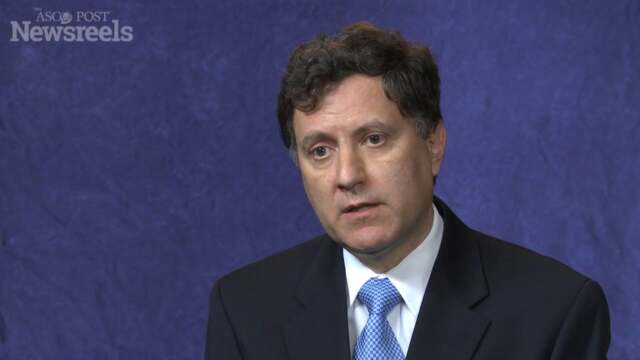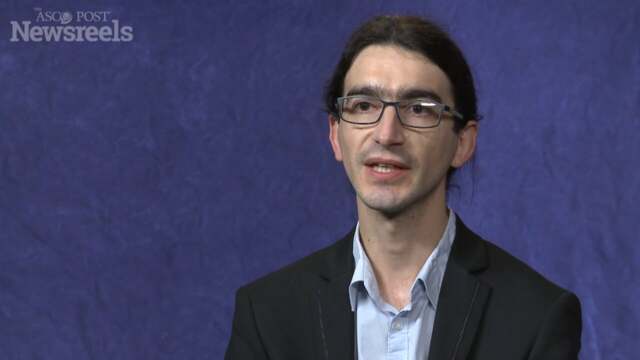Sarah E. Hoffe, MD, on Pancreatic Cancer and SBRT: Pros and Cons
2017 Gastrointestinal Cancers Symposium
Sarah E. Hoffe, MD, of the Moffitt Cancer Center, discusses the controversial role of radiation in the treatment of pancreatic cancer, recent advances in delivering short courses of high-dose stereotactic body radiation therapy, and how best to integrate this new modality in borderline and locally advanced disease.
Geoffrey Ku, MD, MBA, of Memorial Sloan Kettering Cancer Center, discusses the promise of immunotherapy drugs and the search for biomarkers that will help identify patients more likely to respond, not only to these medications, but to combinations of immunotherapies, other targeted treatments, chemotherapy drugs, and radiation.
Mark Talamonti, MD, of NorthShore University Health System, discusses the technical prerequisites for minimally invasive surgery in pancreatic cancers and the potential benefits to patients.
Cynthia L. Sears, MD, of Johns Hopkins University School of Medicine, summarizes her keynote talk on microbes, microbiota, and colon cancer. Next-generation sequencing combined with biologic studies suggests that most colorectal cancer cases have specific microbiome associations.
Ignacio Melero, MD, PhD, of the University Clinic of Navarra, Centre of Applied Medical Research, discusses study findings on nivolumab dose escalation and expansion in patients with advanced hepatocellular carcinoma (Abstract 226).
Julien Edeline, MD, of the Centre Eugène Marquis, discusses in French study findings on gemcitabine and oxaliplatin vs surveillance following surgery for localized biliary tract cancer (Abstract 225).





